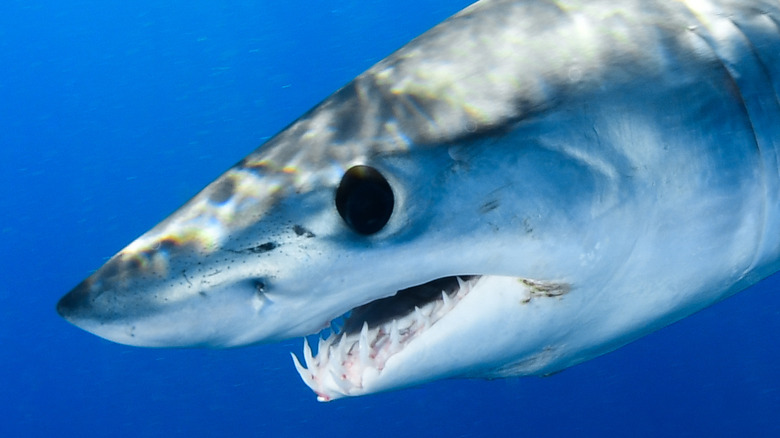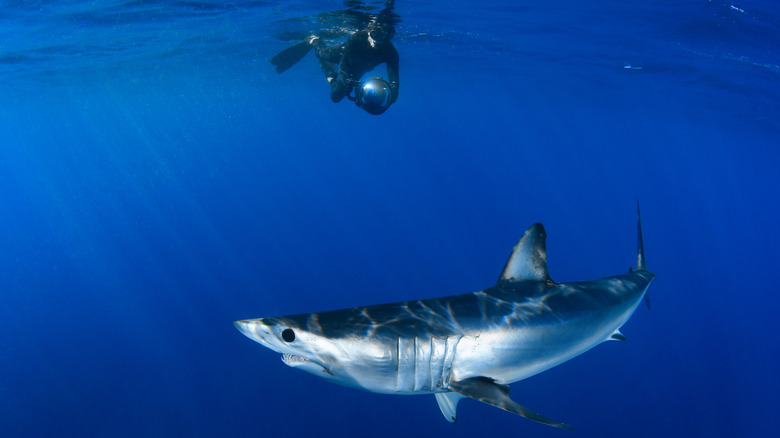Here's How Fast Mako Sharks Can Actually Swim
It's common knowledge that the cheetah is the fastest land animal, but what about the fastest fish in the sea? The No. 1 title goes to the black marlin, which can reach speeds up to 80 mph. When talking about sharks, though, the mako shark takes the title.
Just like any encounter with a shark, being in close proximity to a mako shark can be dangerous. However, these creatures prefer deep waters over coastal waters, which is why mako shark attacks on humans are rare. According to Florida Museum, there have been 10 documented mako shark attacks on humans, with only one resulting in death.
On average, mako sharks measure 10 feet long and weigh about 300 pounds. However, some mako sharks can reach up to a thousand pounds in weight. Their fast swimming speed is attributed to their denticles — tiny tooth-shaped scales measuring 0.2 millimeters that cover sharks. As reported by Forbes, the denticles serve different purposes, one of them allowing the mako shark to be more hydrodynamic and reducing the drag when they are swimming, letting them move faster in the water.
What makes them fast?
Amy Lang, an aeronautical engineer from the University of Alabama, says that mako sharks' denticles are very flexible, particularly on their pectoral fins and behind their gills, as reported by New Scientist. The flexibility helps in reducing the drag called flow separation, which happens when water passes through sharks' gills and slows down their movement. Since the denticles of mako sharks are flexible, they move with the water's current by bristling upward and prevents flow separation from happening.
Mako sharks come in two species — the longfin mako and the shortfin mako. Shortfin mako sharks are considered cheetahs of the ocean, with an average swimming speed that can reach 31 mph and bursts of movement that reach up to 46 mph, as reported by Smithsonian Ocean. However, some shortfin mako sharks have been observed to be as fast as 60 mph.
Another factor that helps with mako sharks' speed is that they are endotherms — partially warm-blooded creatures. Mako sharks are able to regulate their temperature and keep their body heat, giving them a speed boost when hunting for prey (via Untamed Science). Warmer muscles are also more efficient for moving, which is why these sharks move faster than their relatives, who are mostly cold-blooded.
Shark Week airs July 11-18 on Discovery and discovery+.

